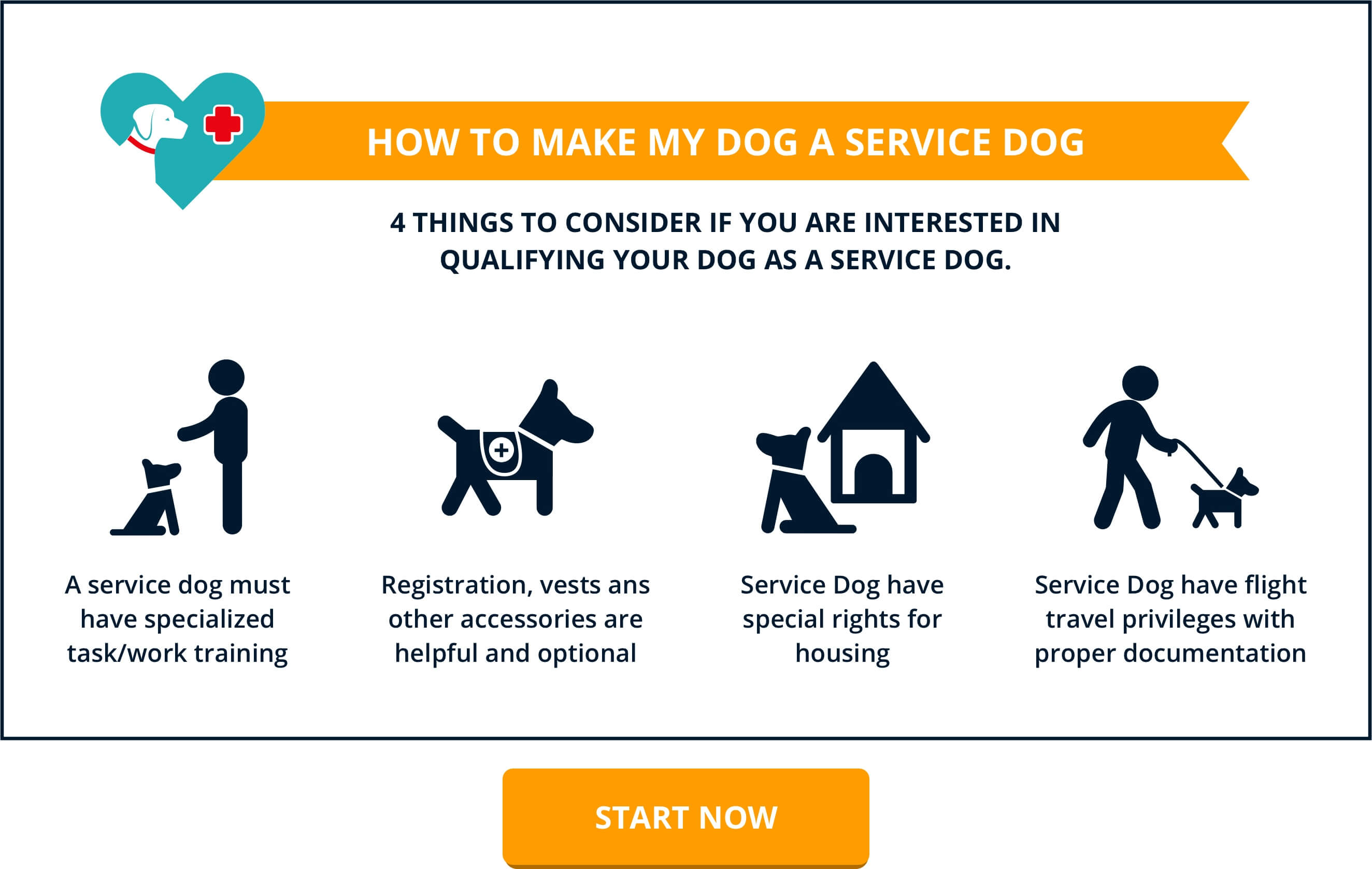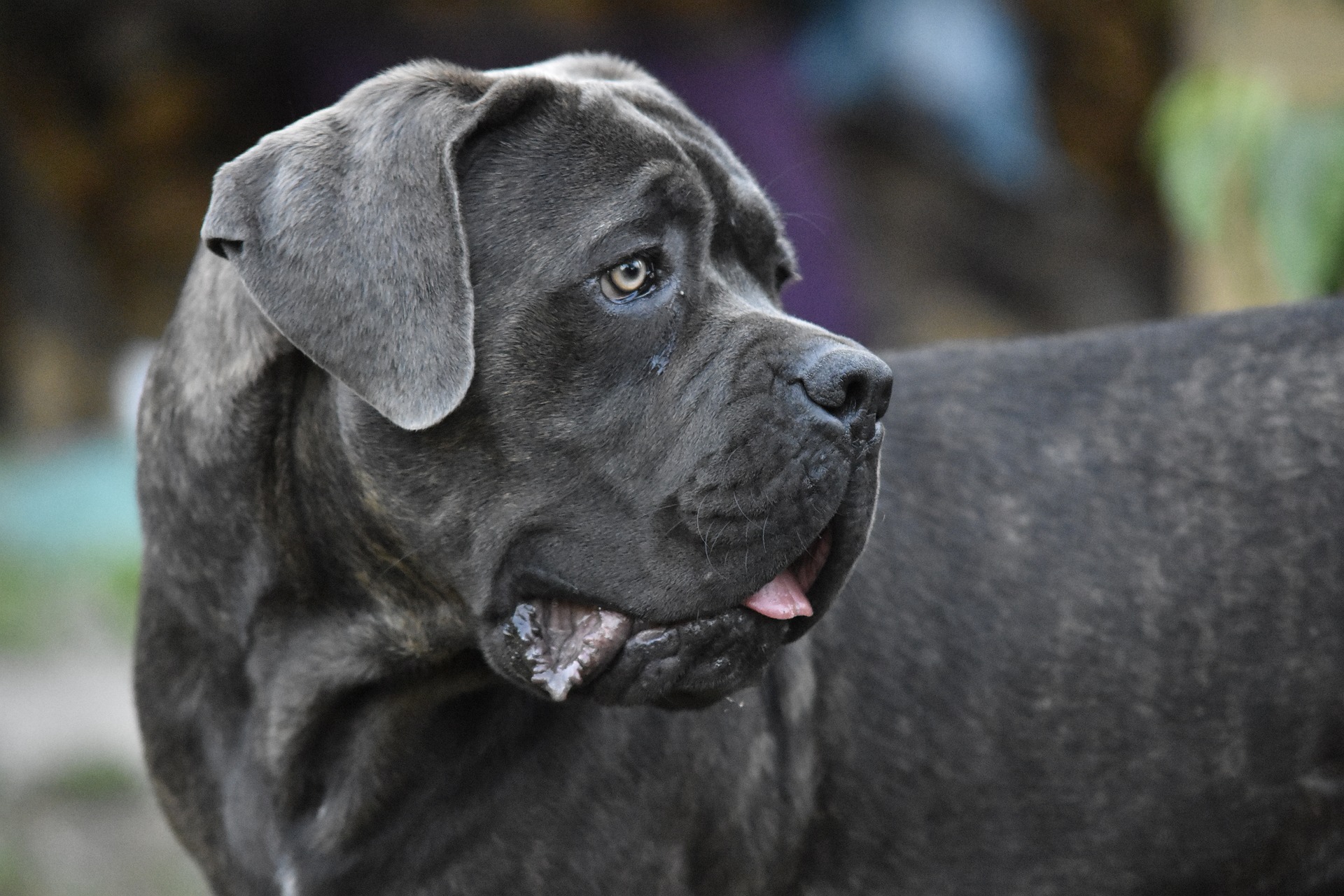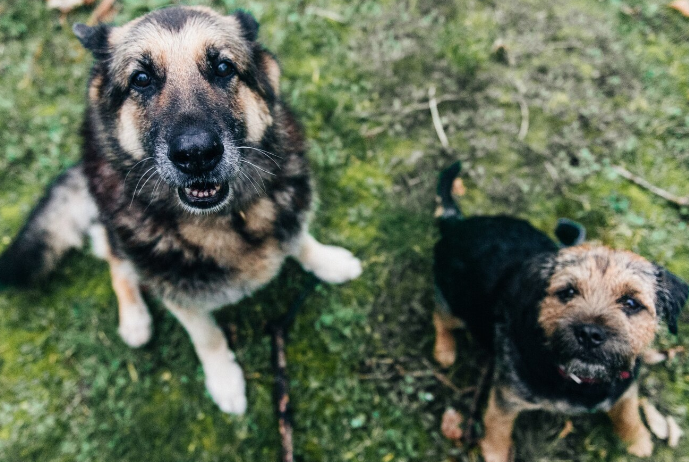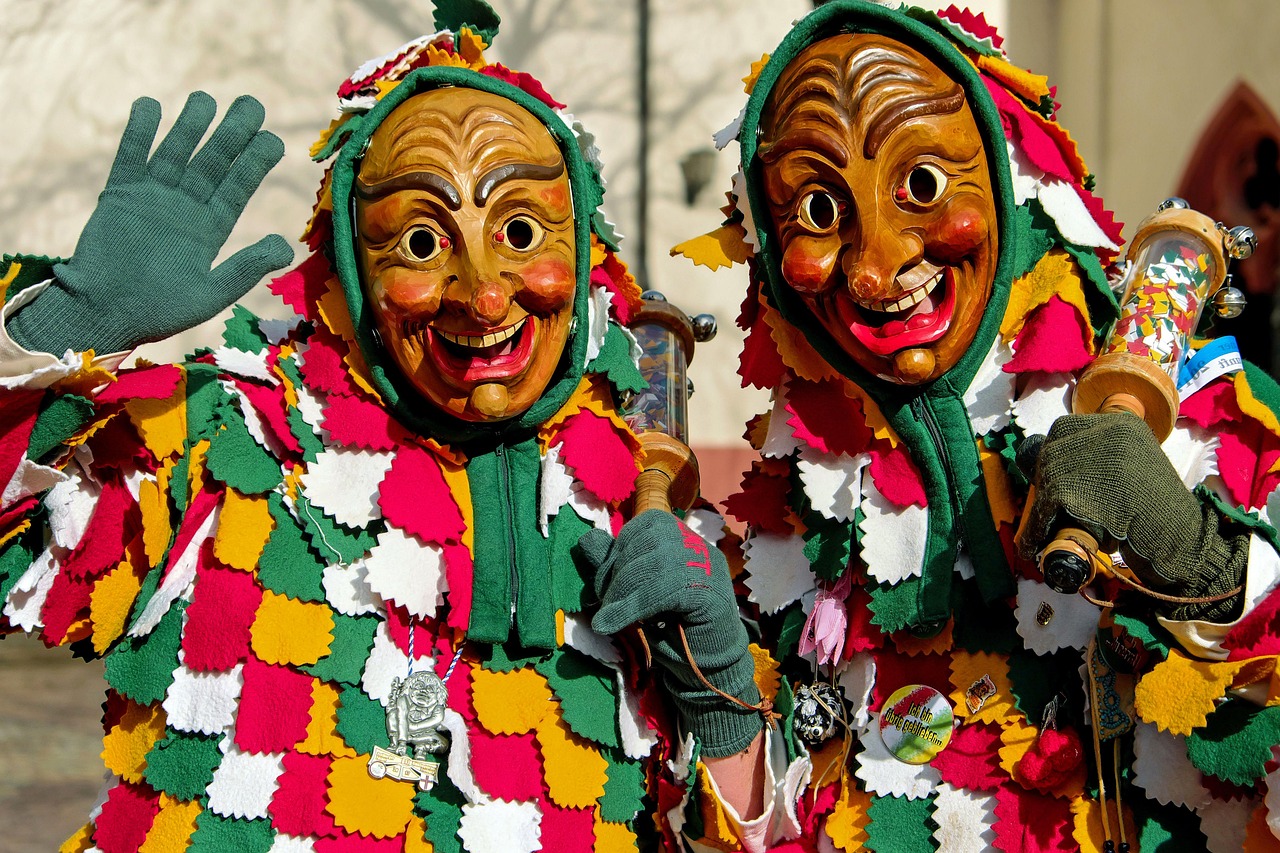- Are There ADA Regulations in Regard to Small Service Dog Breeds?
- Why Is It a Good Idea to Have a Small Dog Breed as a Service Dog?
- What Are the Disadvantages of Having a Small Service Dog Breed?
- Tasks That Small Service Dog Breeds Can Perform
- What Advice Can We Give You When Choosing A Small Breed Service Dog?
- What Are the Best Small Service Dog Breeds?
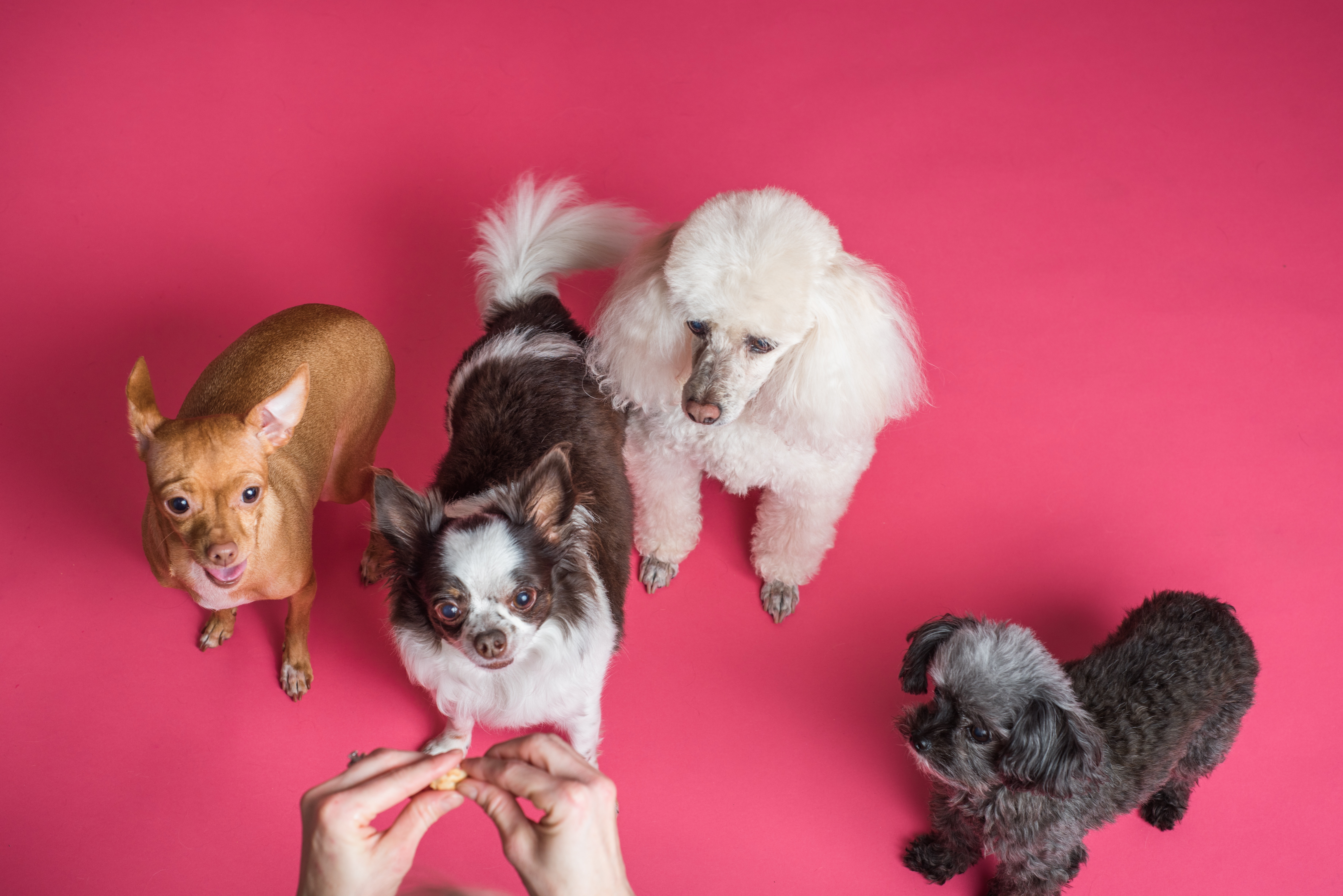
Many people associate the term “service dog” with big breeds like the German Shepherd, the Golden Retriever, the Labrador Retriever, or the Bernese Mountain Dog. When it comes to performing specific tasks for individuals with a disability, the general public tends to limit these tasks to pulling a wheelchair or guiding people with visual impairments. Small dog breeds are often underrated as service dogs and some people do not take them as seriously as they deserve.
Small dogs are able to perform different tasks as well as large dog breeds. Having a small dog breed as a service animal has many benefits as well as concerns. In this article, we will point out some of them and will also explain whether ADA (Americans with Disability Act) regulates the weight and height of service dogs.
Are There ADA Regulations in Regard to Small Service Dog Breeds?
The answer is No. The ADA does not limit the type of breeds that can be service dogs to large breeds only. Moreover, it is considered a violation of the ADA regulations if an individual has been refused public accommodation access, based on the service dog breed only. According to the ADA regulations:
“A service animal may not be excluded based on assumptions or stereotypes about
the animal’s breed or how the animal might behave. However, if a particular service animal
behaves in a way that poses a direct threat to the health or safety of others, has a history of
such behavior, or is not under the control of the handler, that animal may be excluded. If
an animal is excluded for such reasons, staff must still offer their goods or services to the
person without the animal present”.
Why Is It a Good Idea to Have a Small Dog Breed as a Service Dog?
Raising a small dog like Yorkshire Terrier, Chihuahua, Corgi, Toy Poodle, Pug...etc. means that you do not have to spend so much money on food. It could be a really challenging task to secure enough good quality food for a big dog breed like the German Shepherd.
Smaller breeds do not require so much grooming, as they just have smaller coats compared to bigger breeds. Of course, they still need a regular grooming, but it would be much easier for you to take some of the groomer’s tasks yourself.
A big advantage of having a small service dog breed is the easy transportation. Service dogs are allowed to fly in the cabin but they are supposed to stay under the seat. Traveling with a small dog means that the animal will feel more comfortable under the seat, moreover, he/she is less likely to interrupt the access to the aisle or to invade the personal space of other passengers.
Another advantage of small breeds that we need to mention is that their representatives do not require so many exercises as big breeds do. Exercises are very important for your dog to stay fit and healthy. Regular exercises and performing more demanding tasks can be crucial for both the physical and the mental health of big breeds as some of them tend to be really energetic and eager to perform well. You can imagine how different your daily training routine would look if having a small dog breed, that does not require so many exercises.
What Are the Disadvantages of Having a Small Service Dog Breed?
Small breeds are predisposed to illnesses like:
Protruding eyeballs- this disorder is common in short-nosed breeds;
Hypoglycemia- small breeds have a fast metabolism and they have to be fed more often in order to keep their blood sugar levels normal;
Patellar luxation (dislocation)- this is a condition where the knee cap rides outside the femoral groove when the knee is flexed;
Heart disease;
Tracheal collapse (“a condition characterized by incomplete formation or weakening of the cartilaginous rings of the trachea resulting in flattening of the trachea”), that can be treated with medications and preventative care, like using a flat harness for walks, weight loss, and avoiding airway irritants;
Hip joint disorders;
Jaw and teeth issues;
Small breeds may have difficulties performing physical tasks like:
Pulling a wheelchair; helping people with balance issues; retrieving larger objects; reaching locations, that are hard to access (i.e. high locations).
Small dog breeds may be too sensitive to any changes in their environment and find it difficult to adapt to them. You have to keep in mind that small dogs can get cold easy at low temperatures and you have to be prepared to dress them appropriately. Due to a cold-weather they are likely to shiver more. As these canines have a more fragile structure you need to pay closer attention to them while outside, as they can get hurt easier.
Problems that may occur while in public
Many small dog breeds are not likely to enjoy being petted or handled by children, as children can injure or step on them accidentally.
Small breeds may become a victim of larger breeds outside, as their presence can trigger a large dogs’ predator instinct. Hence, it could be more difficult for you to socialize your dog with animals of larger size.
A very common issue that you may experience while in the public accompanied by a small service dog is the unwanted attention of passersby. People are more tolerant to small dogs and in most cases they are not afraid of them. This could lead to situations where some people, especially children, try to pet your service dog. Due to their cute look, small dog breeds are often underrated and not taken seriously as assistance dogs by many people, including business owners.
You may not feel comfortable when training small breeds
The last disadvantage that we would like to mention is related to the handler’s body position during the training process. If you need to train your own small breed service dog, you may need to kneel or sit most of the time in order to conduct the training. Moreover, you may have to help him/her reach high locations and to pick him/her up frequently.
As we already pointed out the advantages and the disadvantages of raising a small breed service dog, you may want to know what kind of tasks small breeds are able to perform.
Tasks That Small Service Dog Breeds Can Perform
Hearing Dogs
The representatives of the small breeds can become excellent hearing dogs. Individuals with hearing impairments can train their dog to hear and respond to certain sounds like alarms, doorbells, cooking timers, crying babies...etc. These doggies will nudge you or touch you with a paw and lead you to the source of the sound. Basically, any dog can be trained to perform these tasks, regardless of its size and weight.
Seizure Alert Dogs
These dogs can be trained to alert their handlers once they sense that a seizure may occur. Their intervention may be crucial for the health and safety of their handler. The tasks that they are able to perform may be related to making their handler sit down if they are walking or reminding them to take their medication. These are only some of the tasks that small breeds can fulfill as well as large size breeds.
Tachycardia Episode Alert Dogs
“Supraventricular tachycardia (SVT) is a heart condition featuring episodes of an abnormally fast heart rate. The heart will suddenly start racing, then stop racing or slow down abruptly. Episodes can last for seconds, minutes, hours or (in rare cases) days”. When experiencing this condition people may have symptoms like chest pain or even fainting, due to the inability of the body to pump the blood properly. Service dogs can be beneficial in such situations as they can be trained to check the heart rate and blood pressure of their handlers. Once they detect any changes, they will warn their handler before the symptoms show up.
Diabetic Alert Dogs
Small service dog breeds can efficiently detect any changes in blood sugar, once they are trained properly. The actions taken by a service dog will interfere with dangerous situations that may occur. Since dogs have a really strong sense of smell they are able to detect organic chemicals in the human body.
Psychiatric Service Dogs
Small service dog breeds are considered excellent Psychiatric Service Dogs.
Small breeds similar to the larger dog breed representatives are able to perform both physical and mental tasks for the benefit of an individual with a disability. Deep pressure stimulation (DPS) is one of the main tasks that a psychiatric service dog can perform. DPS can be performed via two commands “Chin”, when it comes to a large dog breed, and “Lap” when it comes to a small dog breed. As the name of the command suggests, small breeds can be trained to jump in the lap of their handler in order to comfort them and calm them down. Public spaces or even your home can feature factors, that can trigger conditions like anxiety and stress. Many people find it difficult to handle properly these conditions by themselves. That is why they reach out to Psychiatric Service Dogs in order to get the help they need.
What Advice Can We Give You When Choosing A Small Breed Service Dog?
If you have decided to raise a small service dog breed, we would recommend that your dog partner should not be smaller than 15 lbs (6.8 kg). In addition, you may want your service dog to have an extra solid bone structure, so that he/she will not get hurt easily. If you have decided to raise a small dog breed as a service dog, it is recommended that you choose a larger representative of the breed or a mixed breed (a small breed plus a large breed).
It is really important that you get enough information about your dog’s pedigree.
Since smaller breeds are exposed to many illnesses you need to pay attention to their health and monitor them on a daily basis. You may want to visit a veterinarian for a dental check and to give your dog partner dental sticks to chew. Be careful when picking up your dog or putting him/her on the floor, since you can hurt/them accidentally.
What Are the Best Small Service Dog Breeds?
Some of the best small service dogs breeds are the Yorkshire Terrier, the Corgi, the Pug, the Poodle, and the Chihuahua. These doggies are easy-going, intelligent, with a friendly temperament, they can be easily held and petted. These canines can be easily trained and show great obedient skills when properly trained. In addition, they are welcomed in public spaces due to their wonderful personality.

